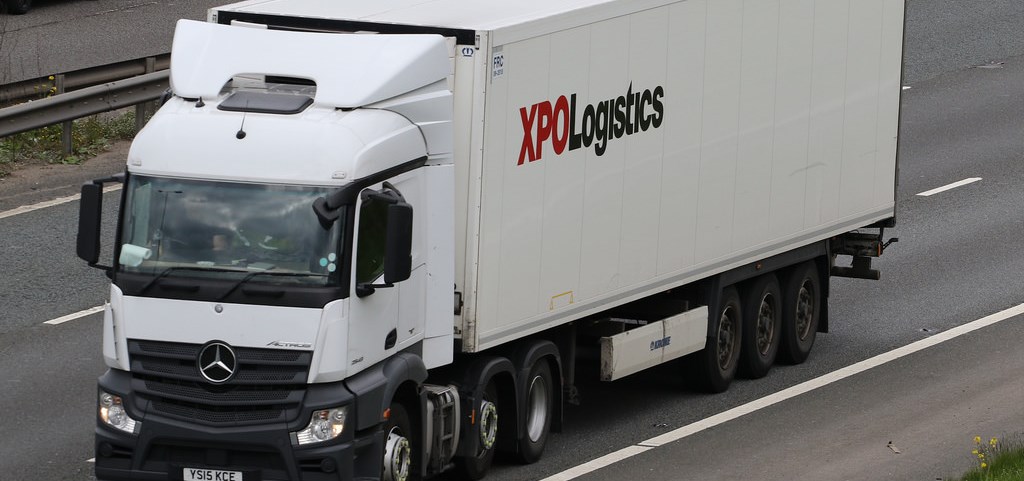â€Crops left in the fields’
Britain is leaving the EU during a period when it is more reliant on foreign food than any time in the past 40 years.
If the UK had to rely on home-grown food in 2017, supplies would have run out by the end of last week, according to research.
Britain’s larder would have been empty by August 8 if the nation used its own supplies from January 1 and did not import food, figures from the NFU show.
The UK grows 60 per cent of its own food, the data shows, with the level in decline since the 1980s. The news prompted calls for the UK to become more self-sustainable to deal with the challenges posed to the country’s food security by Brexit.
“In a post-Brexit world the UK needs to be agile and inventive when it comes to food policy. This research is a wake-up call that our food security is closely linked to the international economy,” said Unite national officer for food, drink and agriculture, Julia Long.
“While it is unrealistic to aim for the UK to be completely dependent on its domestic produce, it is necessary for us to defend and strengthen our agricultural sectors so that they provide for us at home and perform well abroad.”
Â
More than two thirds of the UK’s agricultural exports go to the EU, with the industry facing some of the highest tariffs if Britain leaves, or retains only partial access, to the customs union and single market.
For instance, if the UK falls onto World Trade Organisation rules and has to pay the same tariffs as non-EU countries, skimmed milk would face tariffs of 74 per cent, butter a tariff of 63 per cent and cheddar a tariff of 43 per cent.
Wheat exports would be hit by a tariff of 53 per cent, while frozen beef carcasses would face crippling duties of 160 per cent.
As well as the potential to hit industry performance and subsequently jobs, Brexit also poses dangers to the rights of agricultural workers.
Workers’ rights
EU legislation underpins a wide range of workers’ rights. These include directives on working time, equal pay, health and safety, discrimination, TUPE, equal treatment for part-time, fixed-term and agency workers, information and consultation rights, paid holiday and maternity and parental leave.
Approximately 70 per cent of the UK’s food imports come Europe and could also be subject to high tariffs. Food prices for British consumers could rise considerably, with the British Retail Consortium estimating increases of 22 per cent in the event of a hard Brexit.
Although the possibility of striking trade deals with nations outside of the EU has been touted as a way to keep food prices down, this comes with its own set of problems.
US farmers have already lobbied trade negotiators to open up UK markets to American produce banned in Europe, once Britain has leaves the EU.
If successful the move could see exports currently banned under EU law enter Britain including: genetically engineered food, chicken dipped in chlorine and hormone raised beef.
Not only could this hamper trade relations with Europe, which would place heavier restrictions on imported agricultural products from the UK, it could weaken food safety standards – with the potential for UK farmers to adopt similar methods to compete with cheap imports.
In addition, a lack of migrant labour from the continent has the potential to hurt the UK’s food security.
Of the approximately 400,000 people working in UK food manufacturing around 120,000 are foreign citizens, leaving the sector at particular risk from sharp drops in the labour market.
In May there was a 17 per cent shortfall of fruit and veg pickers leaving some farms with critical staff shortages, a NFU survey found.
â€Xenophobic’
The drop in labour was because the UK is now seen as “xenophobic” by EU workers, the boss of a major agricultural recruitment firm said.
Hops Labour Solutions director, John Hardman, told the Guardian, “We’ve gone with a Brexit and that makes us look unfriendly. The immediate impact is that there will be crops left in the fields.”
In order to see the UK’s food, drink and agriculture sector safely through Brexit, Unite is calling on the government to reform the free movement of people to include automatic collective bargaining rights. This would keep labour supplies open and ensure all workers – whether foreign or domestic – are treated fairly.
The union is also demanding tariff free access to the single market and that EU working rights are protected and maintained.
But these demands alone will not enough, especially with changes brought to the industry by automation, explained Unite national officer Julia Long.
She said, “There needs to be immediate and long-term investment in skills. Increased automation means some unskilled and lower-skilled jobs are being lost, but may mean more demand for skilled workers.
Skills
“If we are to set a successful post-Brexit course we need to prepare for the jobs of the future today. The existing workforce needs to be up-skilled and more quality apprenticeships – with decent rates of pay – need to be created to attract young people into the industry.
“Investment in skills is the only way to create a long-term sustainable future that guarantees not only the success of British agriculture but the country’s food security as well.”
In his new book, “Bittersweet: Land, Labour and Food after Brexit”, Unite member and food security expert Dr Charlie Clutterbuck, offers a solution to Britain’s looming food challenges.
Clutterbuck also advocates for better education and training in the agricultural sector in order to improves yields, increase sustainability and ensure greater self-sufficiency.
This would be achieved by changing EU farming subsidy legislation once it returns to the UK, so that payments are made on the condition that they benefit working people and the future of the industry, rather than simply going to rich landowners.
Clutterbuck explained that the current EU farming subsidy system – which pays out £3bn to UK farmers – overwhelmingly rewards those with huge tracts of land. Put simply, the more land a person has, the more money they receive.
He argues this disincentives agricultural innovation because landowners get paid for doing nothing.
Clutterbuck explained that instead of paying the subsidies based on land, the payments should be linked to supporting labour.
“This will allow farmers to employ and train young people on multi-skill apprenticeships. Instead of paying a few rich landowners £3bn we could pay 300,000 people £10k,” he said.
Download Unite’s Food, Drink and Agriculture Brexit document here.
 Like
Like Follow
Follow


